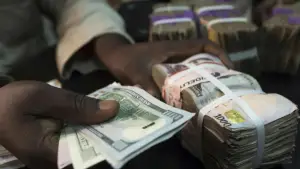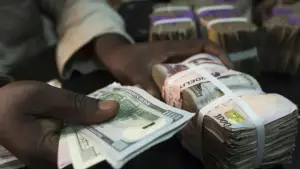The naira returned to depreciation against the dollar at the official foreign exchange market on Friday, ending the week on a negative note after showing signs of stability earlier in the week.
According to the Central Bank of Nigeria's exchange data, the naira weakened to ₦1,530.26 per dollar on Friday from ₦1,525.98 on Thursday, representing a decline of ₦4.28 per dollar in a single trading day.
Meanwhile, at the parallel market (commonly known as the black market), the naira has maintained stability at ₦1,550 per dollar, the same rate recorded since Tuesday this week, indicating a narrowing gap between the official and unofficial markets.
On a week-on-week basis, the naira dropped slightly against the dollar at the official foreign market by ₦1.70 from ₦1,528.56 traded last week Friday. This contrasts with its performance at the parallel market, where it gained ₦20 over the same period.
The recent fluctuations in the naira's value come amid ongoing economic reforms and monetary policy adjustments by the Central Bank of Nigeria aimed at stabilizing the foreign exchange market and boosting investor confidence.
Market analysts suggest that the depreciation may be attributed to increased dollar demand from importers and businesses seeking to meet their foreign exchange obligations as the week closed, coupled with persistent supply constraints in the official market.
The CBN has been implementing various measures to enhance liquidity in the forex market and reduce the gap between official and parallel market rates, including interventions through periodic dollar sales to authorized dealers and policy adjustments to attract foreign investments.
Despite these efforts, the naira continues to face pressure from multiple economic factors, including inflation, external reserves management, and global economic uncertainties affecting emerging markets.
Stay updated with the latest economic news and forex market trends by following BenriNews on our social media platforms: Facebook, Twitter, LinkedIn, WhatsApp, Telegram.













